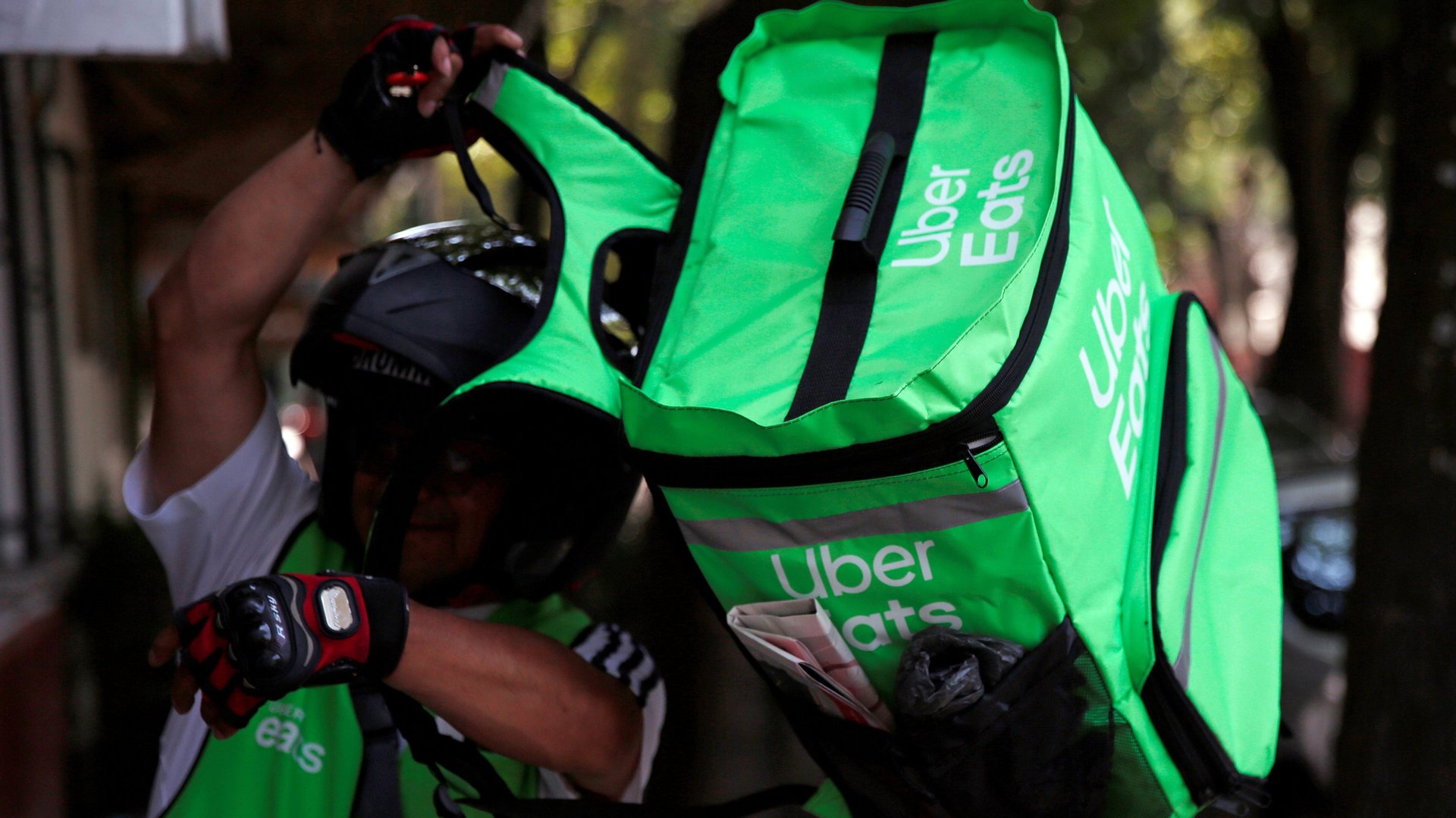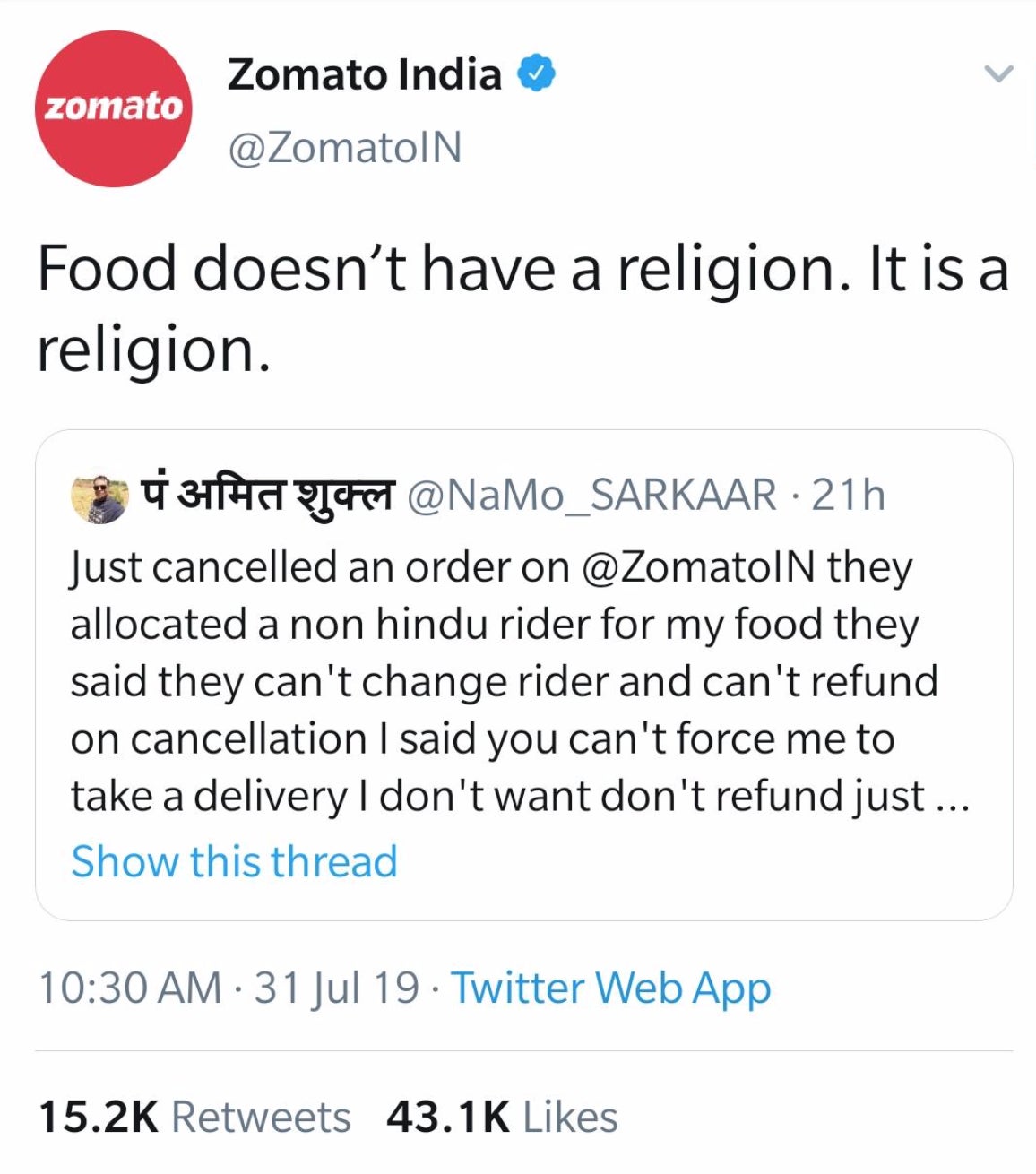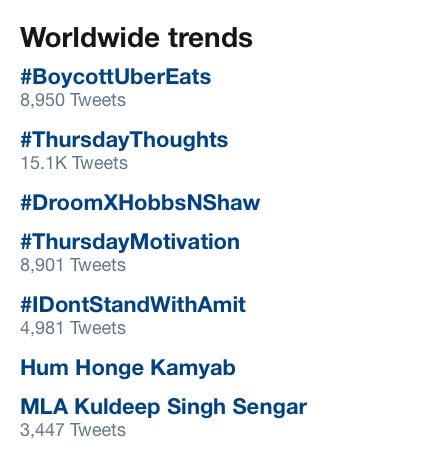The bigotry of one Indian customer has united arch-rivals Zomato and Uber Eats
Food-delivery app Uber Eats is at war with its bigger rival Zomato to dominate India. Yet, an incident of religious discrimination has brought the companies together to affirm a basic value: food is secular.


Food-delivery app Uber Eats is at war with its bigger rival Zomato to dominate India. Yet, an incident of religious discrimination has brought the companies together to affirm a basic value: food is secular.
On July 30, a Twitter user wrote about being assigned a Muslim delivery person for a food item that he ordered on Zomato. The user said he was forced to cancel the order, losing Rs237 ($3.43), after the app’s customer care executive refused his request to reassign the order to a Hindu delivery worker.
Aggregator apps generally display the first name of their delivery workers for users and vice versa, which often makes their faith recognisable.
The Zomato customer’s tweet kicked up a storm on social media in the country.
The food-delivery app’s Twitter account soon responded, quipping that food had no religion. Yesterday (July 31), competitor Uber Eats also expressed solidarity.

But Uber Eats is now bearing the cost of this support. Today, #BoycottUberEats is the top-trending hashtag on Twitter worldwide.

The Indian constitution guarantees citizens a fundamental right against religious discrimination. But it also grants them the fundamental right to practice their religion freely.
In a series of tweets, the purportedly Hindu user, who has now deleted his Twitter account, justified his demand for a delivery worker of the same religion on the grounds that he was observing the holy month of Shravan. Though individual practices differ widely, adhering Hindus generally refrain from consuming meat during the month.
Many users condemned the tweets. But others also criticised Zomato for what they said was religious mistreatment, contending, among other things, that if the app is secular it should also serve Muslims non-Halal food.
Zomato has since said that as an aggregator, it neither prepares the food nor decides whether or not it is Halal.
The Zomato incident echoes a similar one last year that involved cab aggregator Ola. A Hindu Twitter user, followed by multiple ministers in prime minister Narendra Modi’s cabinet, had said he cancelled a ride booked on the app after noticing that the driver had a Muslim name. Like Zomato, Ola had then clarified that it does not condone choosing drivers based on their religious background.
In another incident last year, an Ola driver refused to take a Muslim user to his destination because it was located in a “Muslim colony.” After the user posted about this on Twitter, the startup terminated its contract with the driver.